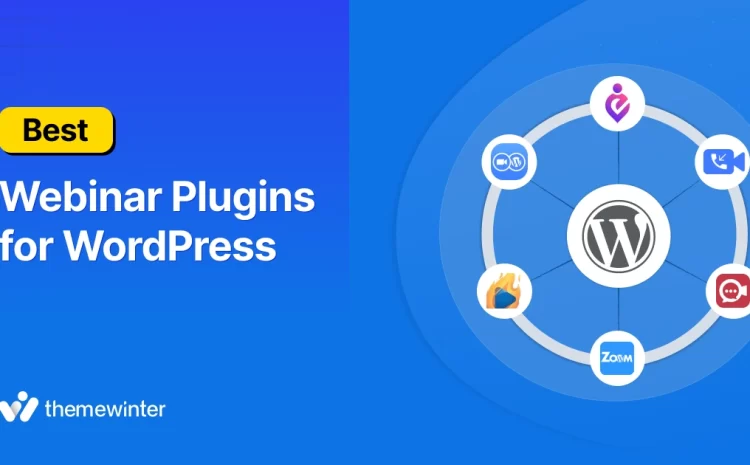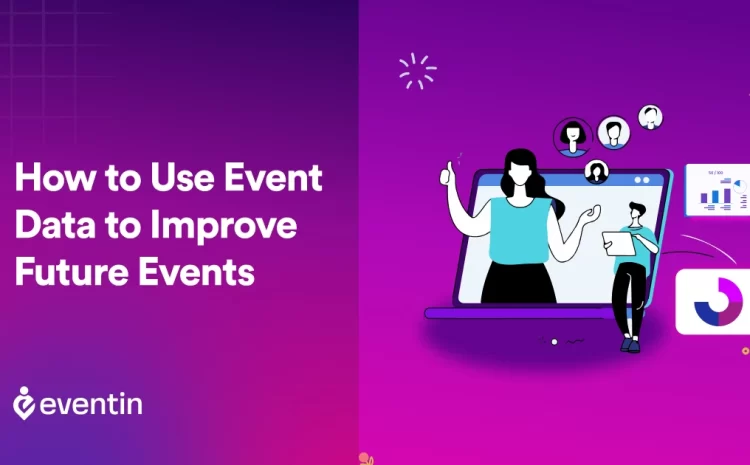7 Effective Ways How to Effectively Communicate with Your Event Team
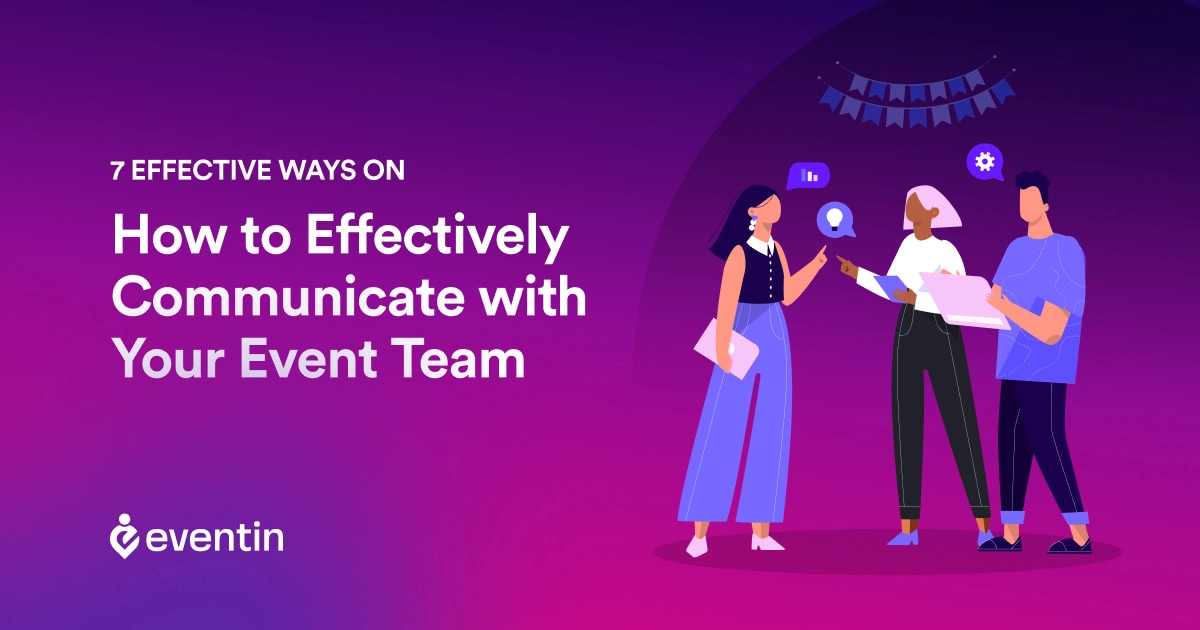
Table of Contents
Picture this: You’ve meticulously planned every detail of your event. The lights are perfect, the venue looks impeccable, and the schedule is locked in. Yet, when the day arrives, a slew of unexpected problems pop up, all because of one overlooked element—you can’t communicate with your event team effectively.
The invisible thread binds every moving part together, ensuring that the grand vision you’ve imagined becomes a reality. If you’ve ever felt the sting of miscommunication or the chaos of last-minute changes, you’re not alone. That’s why we’re delving into the heart of what makes events successful: mastering the art of talking, understanding, and coordinating with your team.
In this post, we’ll uncover 7 powerful ways how to effectively communicate with your event team to ensure that your event doesn’t just go off without a hitch but soars beyond expectations. Curious to know more?
Let’s dive in and learn how to properly communicate with your event team.

Why Effective Communication With the Event Team is Crucial?
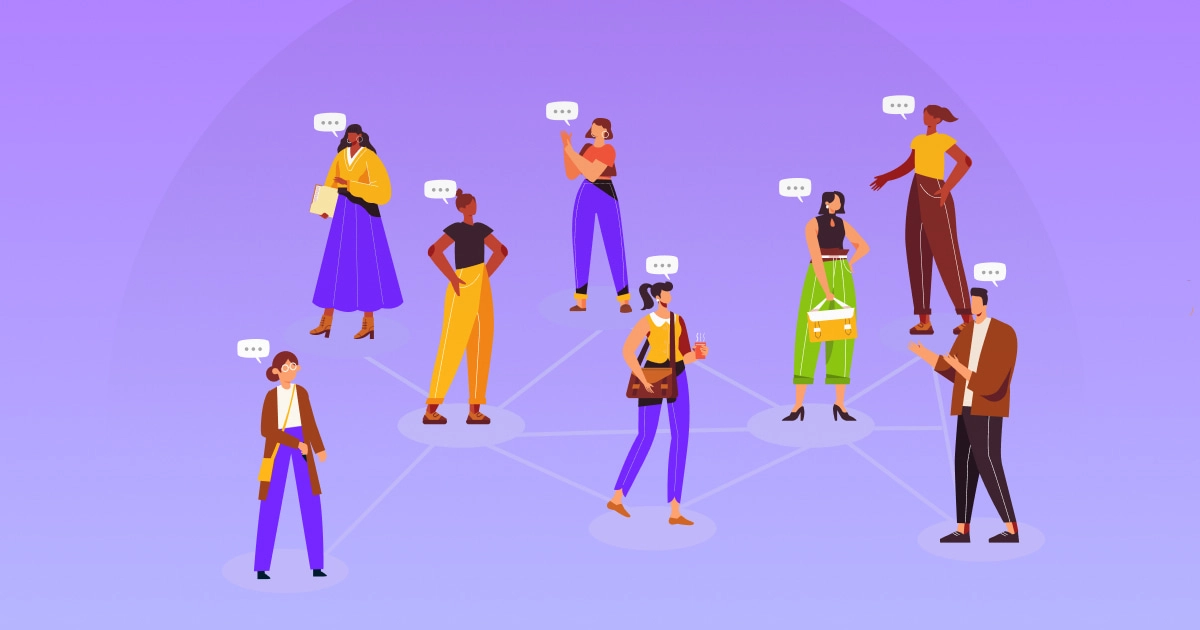
Imagine orchestrating a symphony without a conductor or building a skyscraper with architects and engineers never meeting. Sounds chaotic, right?
Similarly, in the world of events, communicating with your event team isn’t just a tool—it’s the lifeblood that pumps energy and direction into every aspect of event planning and execution. Let’s dive deeper into the undeniable reasons why effective communication in event management is non-negotiable in managing event teams:
- Unity of Vision: Events are grand spectacles of an orchestrated effort. Clear event team collaboration guarantees everyone dances to the same rhythm, championing a unified vision.
- Dodging the Blunders: The devil is in the details, and with events, tiny missteps can lead to glaring mistakes. Effective communication tools for events are our guard against these pitfalls, ensuring everyone’s on the same page.
- Efficiency Unlocked: Think of communication in event management as the oil in a well-tuned machine. It keeps operations smooth, ensuring tasks aren’t duplicated, and efforts aren’t wasted.
- Happy Teams, Successful Events: When teams feel connected and valued, their enthusiasm and dedication reflect in their work. A culture of open communication celebrates contributions and addresses concerns, leading to a happier, more driven team.
- Pivot, Don’t Panic: Change is the only constant in managing event teams. Effective communication acts as the anchor, ensuring the team can swiftly adapt and realign when plans go awry.
- Trust as the Foundation: Trust isn’t just built overnight. It’s cultivated through consistent, transparent updates and an open two-way dialogue. When teams trust their leadership and each other, they’re more committed and proactive.
- Elevated Guest Experience: Our internal synergy casts a direct reflection on the attendee experience. The better you communicate with your event team, coordinate, and collaborate internally, the more memorable and seamless the experience you craft for your guests.
In the grand theater of events, while lights, music, and décor set the stage, it’s the unsung symphony of effective communication that truly brings the magic to life.
7 Ways on How to Effectively Communicate with Your Event Team
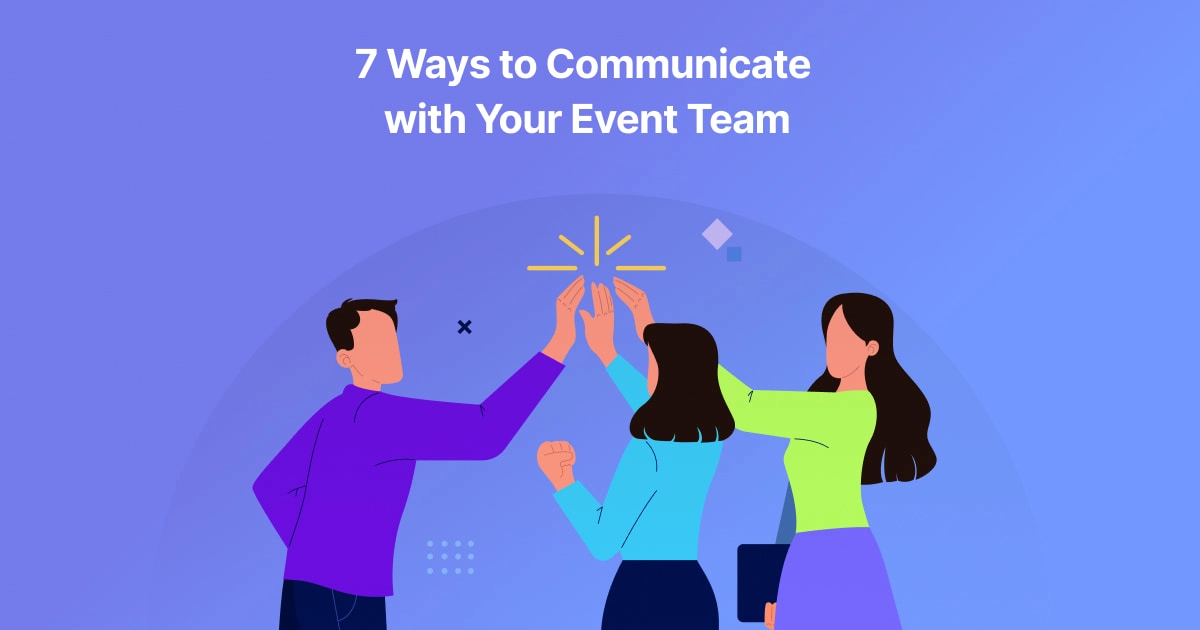
To increase the possibility of your event’s success, collaborating with your event team is the only effective alternative. Building strong event team dynamics can be your core strength that can make your events even more successful.
The list of effective ways on how to properly communicate with your event team is quite extensive. From this comprehensive list, we want to highlight the seven most effective communication tools for events that will help make your event management efforts successful. Let’s take a look-
1. Choose the Right Communication Tools
When it comes to effective communication with your event team, one size doesn’t fit all. It’s like choosing the perfect tool for a specific job. Start by understanding your team’s preferences and your event’s unique requirements. Do team members prefer real-time chats or do they work better with a slower, more thought-out approach?
Think about using powerful communication platforms like Slack, Microsoft Teams, or WhatsApp for those quick back-and-forths. For collaborative document sharing and edits, tools like Google Workspace or Microsoft 365 can be invaluable to communicate with your event team. Don’t forget project management software such as Trello or Asana to keep everyone on track, which eventually helps in building strong event team dynamics.
But if you want a complete solution under one package, you can check out Eventin Event Plugin for WordPress, the ultimate plugin for managing events.
In the end, customizing your toolset ensures smoother, more efficient communication tailored to your event team’s needs.
2. Establish Clear Objectives and Expectations

Setting the stage for effective communication within your event team begins with establishing crystal-clear objectives and expectations. For managing event teams, clearly define the goals, scope, and desired outcomes of your event project.
Make sure every team member understands their role and responsibilities in achieving these objectives. Encourage open dialogue where team members can ask questions and seek clarification.
Consider creating a shared document or project brief that outlines key information, timelines, and milestones. By providing a roadmap for your team, you’ll reduce misunderstandings, boost accountability, and ensure everyone is aligned toward the same vision.
Clear objectives and expectations lay the foundation for seamless communication throughout your event planning journey.
3. Regular Team Meetings and Updates
Consistent team meetings and updates are the lifeblood of effective communication in event management. Schedule regular gatherings, whether in person or run a virtual event, to keep everyone informed and engaged. As part of the process of communicating with your event team, these meetings help build strong event team dynamics and serve as a platform to discuss progress, address concerns, and brainstorm ideas collaboratively. To make the entire process even more organized, you can also consider using event calendar plugins.
Share agendas beforehand to ensure discussions stay on track and encourage active participation from all team members. In addition to regular meetings, establish a streamlined and effective event-planning communication channel for quick updates and urgent matters.
Whether it’s a dedicated Slack channel or a shared Google Doc, having a central hub for information exchange keeps everyone in the loop and fosters a sense of unity and purpose among your event team.
4. Foster Open and Transparent Communication

Creating an atmosphere of open and transparent communication is key to a harmonious event team. Encourage team members to voice their ideas, concerns, and feedback without hesitation. Make it clear that all input is valuable and will be thoughtfully considered.
Utilize collaborative platforms where conversations and decisions are documented for easy reference by ensuring transparency. Foster a culture of active listening, where each team member feels heard and respected. When challenges arise, address them openly and constructively, seeking solutions together.
By nurturing an environment of trust and openness, you’ll not only improve communication but also strengthen team bonds and enhance the overall quality of your effective event planning communication.
5. Crisis Communication Plan
Preparing for the unexpected is a crucial aspect of effective event planning communication. Establishing a crisis communication plan ensures that your team knows how to respond to emergencies swiftly and cohesively. Identify potential risks and develop a step-by-step guide on how to handle them.
Designate specific roles and responsibilities for crisis scenarios, and ensure everyone is aware of their role. Share contact information and establish a central communication hub for crisis updates. Conduct drills and training exercises to familiarize your team with the plan, making it second nature during high-stress situations.
With a well-thought-out crisis communication plan in place, your team can respond effectively, minimize panic, and safeguard the success of your event.
6. Adapt to Different Communication Styles

Recognizing and adapting to the diverse communication styles within your event team is essential for productive event team collaboration. Each team member may have their preferred way of receiving and conveying information, such as email, phone calls, or face-to-face meetings.
Take the time to understand these preferences and tailor your communication accordingly; this contributes to building strong event team dynamics. Then learn time management to make your event more effective.
Some may prefer concise bullet points, while others thrive on detailed explanations. By accommodating these differences, you create an environment where everyone feels heard and valued.
Encourage open discussions about communication preferences and encourage team members to express their needs. Adapting to various styles fosters better understanding, smoother interactions, and ultimately, more effective event team collaboration.
7. Celebrate Achievements and Milestones
Don’t forget the power of celebrating achievements and milestones in fostering team morale and effective event planning communication. Recognize and acknowledge both small and significant accomplishments within your event planning journey. This practice will enhance the convenience of communicating with your event team.
This can be as simple as a shout-out during a team meeting or a more elaborate celebration when a major milestone is reached through a fruitful event team collaboration. Celebrations boost team spirit and provide a break from the daily grind, allowing team members to recharge and refocus.
They create a positive atmosphere where team members are motivated to work together towards common goals. In doing so, you enhance communication by reinforcing a sense of unity and shared success throughout the event planning process.
Final Words
We know we’ve left many more topics for discussing how to effectively communicate with your event team. However, for the sake of brevity, we’ve only touched on the major ways to ensure effective communication between you and your event team.
After all, the success of your event largely depends on your ability to manage it effectively. Leveraging advanced tools like Eventin Event Management Plugin for WordPress can be a game-changing solution in this case. While it may involve some costs if you wish to use its full potential, the investment is worth it.
We hope this discussion is helpful! Good luck!
Frequently Asked Questions (FAQ)
We know that you may have many questions on your mind. To help eliminate any confusion, we aim to address the most relevant queries. Take a look!
How do you handle conflict in an event?
When faced with conflict, you’ll want to approach it with understanding and calmness. Listen to every perspective, and you might find common ground. Highlighting shared goals or offering a fresh viewpoint can be your ticket to resolving tensions smoothly.
How do you get people’s attention at an event?
To capture attention, consider setting the right ambiance. Engaging visuals, compelling sounds, or an impromptu quiz can draw eyes and ears your way. Sharing relatable stories or experiences might resonate with attendees. Don’t underestimate the power of a sudden change in lights or music to re-engage a drifting crowd!
How do you connect with group members?
For genuine connections, you’d want to foster an inclusive environment. Kick off with fun ice-breakers. Little gestures, like recalling a person’s favorite snack or a recent story they shared, can create a bond. It’s those personal touches that make everyone feel valued and heard.
How do you get people to talk about your event?
To get that buzz going, aim to craft those “Did you see that?” moments. Encourage attendees to snap, share, and reminisce on social media. Facilitate interactions that leave an impression. When people are talking, you’ll know you’ve left a mark!
